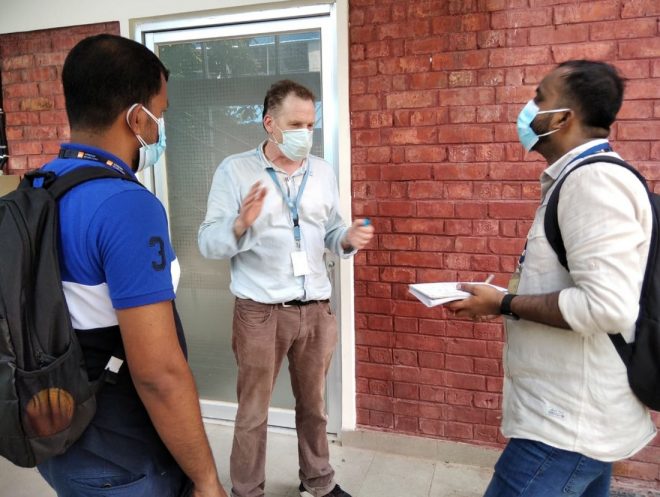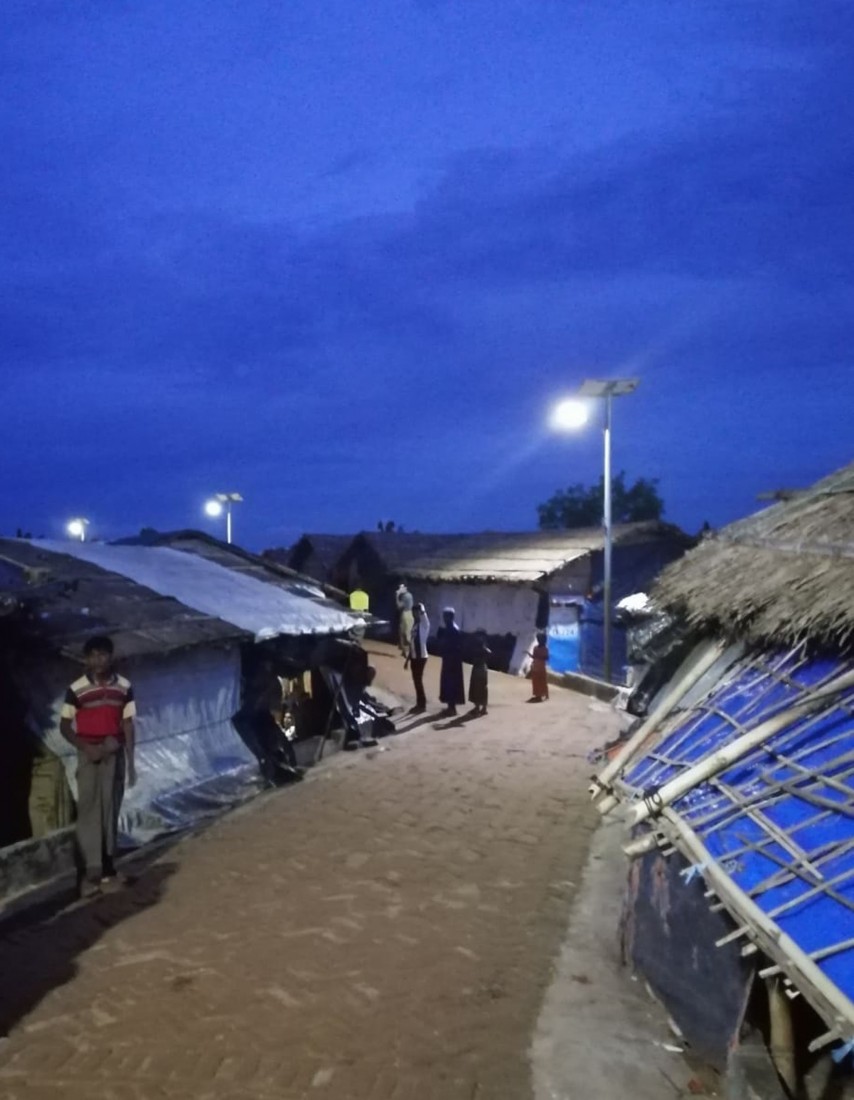
A DONEGAL man will spend Christmas 2020 among more than 850,000 Rohingya refugees in South-East Asia.
Paul McCallion is one of a dedicated group of Irish people who work with UNHCR, the United Nations Refugee Agency, around the world in a range of different roles, protecting the legal rights of refugees and working with partners to ensure they live in dignity and respect.
Since February 2019 he has been based in Bangladesh, a country which is twice the size of Ireland but has a population of 175 million people.
After spending ten years working in the private sector Paul took a year out to give Development Work ‘a go’ and pass on his skills as an electrician.
That was 18 years ago and in that time he’s worked in thirty-three countries in the Middle East, Africa, Asia and the Caribbean for Non-Governmental Organisations (NGOs) and, more recently, UN agencies.
He’s back in Donegal at present but is due to fly back out the Bangladesh in mid-December. Earlier this week he took time out to speak to the Donegal News about his work in the largest refugee camp in the world.
“The Rohingya refugees have come from Myanmar mainly. The influx started in 2017 and today there’s 856,000 refugees in 34 camps,” he said.
It takes one and half hours to drive through the camps, which start close to the Naf river close to where the refugees cross the border into Bangladesh.
“The area was traditionally one of the few under populated places in Bangladesh. It have some hills, which is unusual for the country, and some existing National Parks and forestry which is also unusual because Bangladesh has a population of 175 million.” he said.
“Fuel is the main energy need and requirement for Refugees – food, shelter and water would be the top three basic needs. Seventy to eighty per cent of the energy needs in the camp would be fuel. They cook three to four meals a day which takes a lot of energy,” he added.
A native of the Illies in Inishowen, Paul and his team are currently taking part in the biggest UN environmental operation in the world
“We’re trying to bring fuel costs down but we’re doing an awful lot of environmental rehabilitation and some conservation work because the migratory path of the elephants goes through the camp,” he said.
More than 90,000 refugees households require LPG (Liquefied petroleum gas) for cooking while 40,000 of host community also receive LPG for one year as part of the UNHCR commitment to the host government.
The initial first wave of Covid has been dealt with in Bangladesh and Paul has accumulated some down time which has allowed him the opportunity to come home.
“It’s unclear yet how many people have died from Covid. We don’t have the same scientific data that they have in Europe to make decisions on the exact prevalence,” he said.
“I go back in mid-December so Christmas will be spent in Bangladesh,” he added.
His current contract runs to June 2021. His wife Dr Sandra Buchanan works and lives back home in Donegal.
“Last Christmas Sandra was in Bangladesh. We met up in Asia and went to Singapore. It’s difficult being away from one another but it’s all about a life-style choice,” he explained.
Paul isn’t the only Donegal man working in Bangladesh at present.
“I met a Gortahork fella who was working with an Irish NGO and then stayed on with another NGO a couple of times in the last six months. Colm’s Irish was much better than mine though,” he laughed.
While the work is hard it’s also very rewarding.
“You just have to remember to take the time to sit back and take it all in. You can’t afford to be complacent,” he said.
Paul stays in a two-bedroom cottage outside Cox’s Bazar, a city which is considered the most popular tourist destination in Bangladesh.
The working week is Sunday to Thursday and it’s supposed to be 8am to 5pm but Paul finds himself working most days.
“Because it’s the humanitarian sector, unfortunately it’s not great for work life balance. There’s a lot of workaholics but at this stage I think it’s what I’m good at,” he said.
The preferred option is that the refugees will, ultimately, be allowed to return home.
“It’s going to take a lot of effort from the UN and the Bangladesh and Myanmar governments. They are keen to have the refugees relocated and it’s here that you can really see the importance of embassies in every country and how the different foreign governments come together strategically to advocate for things like this,” he said.










